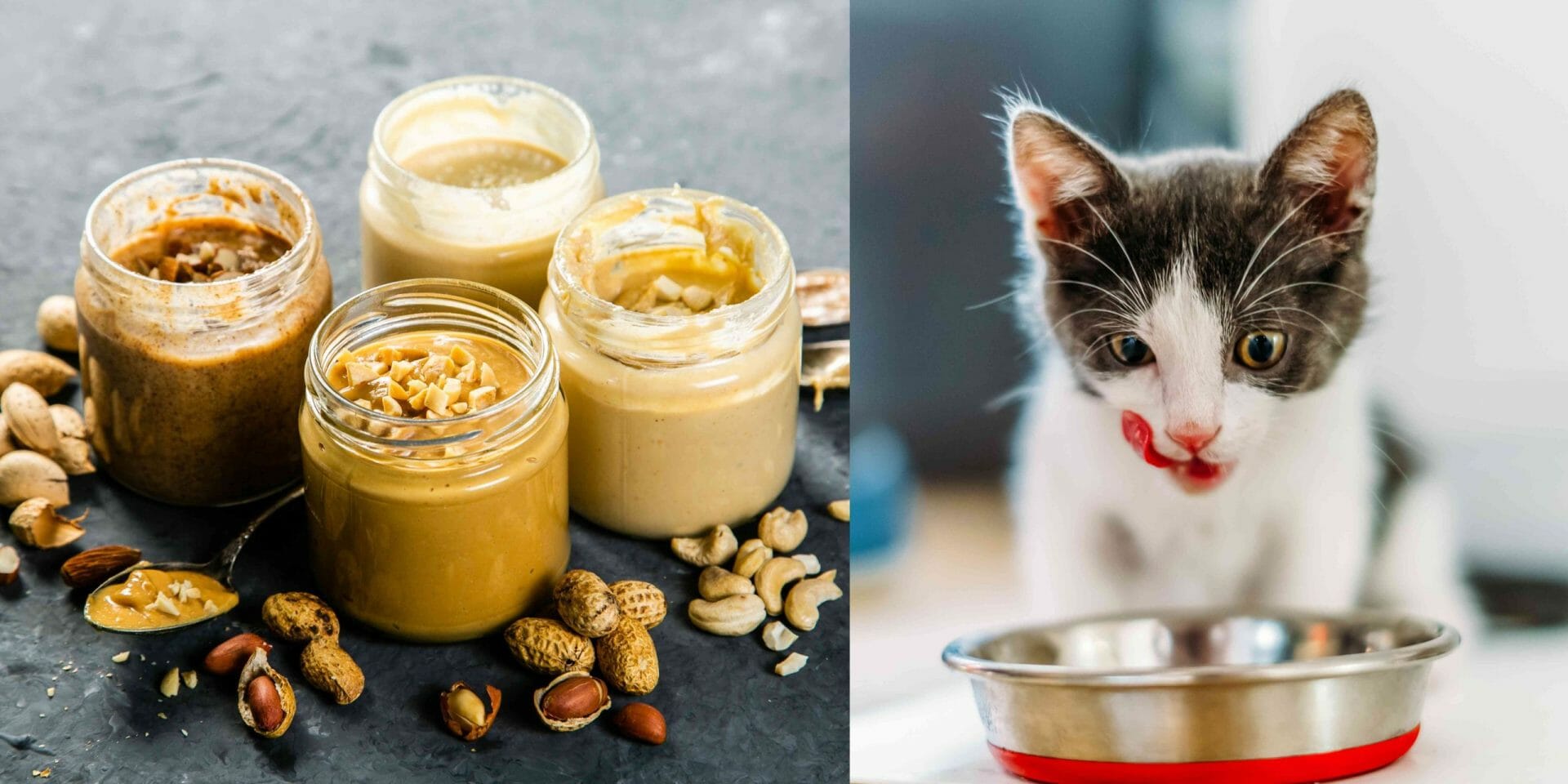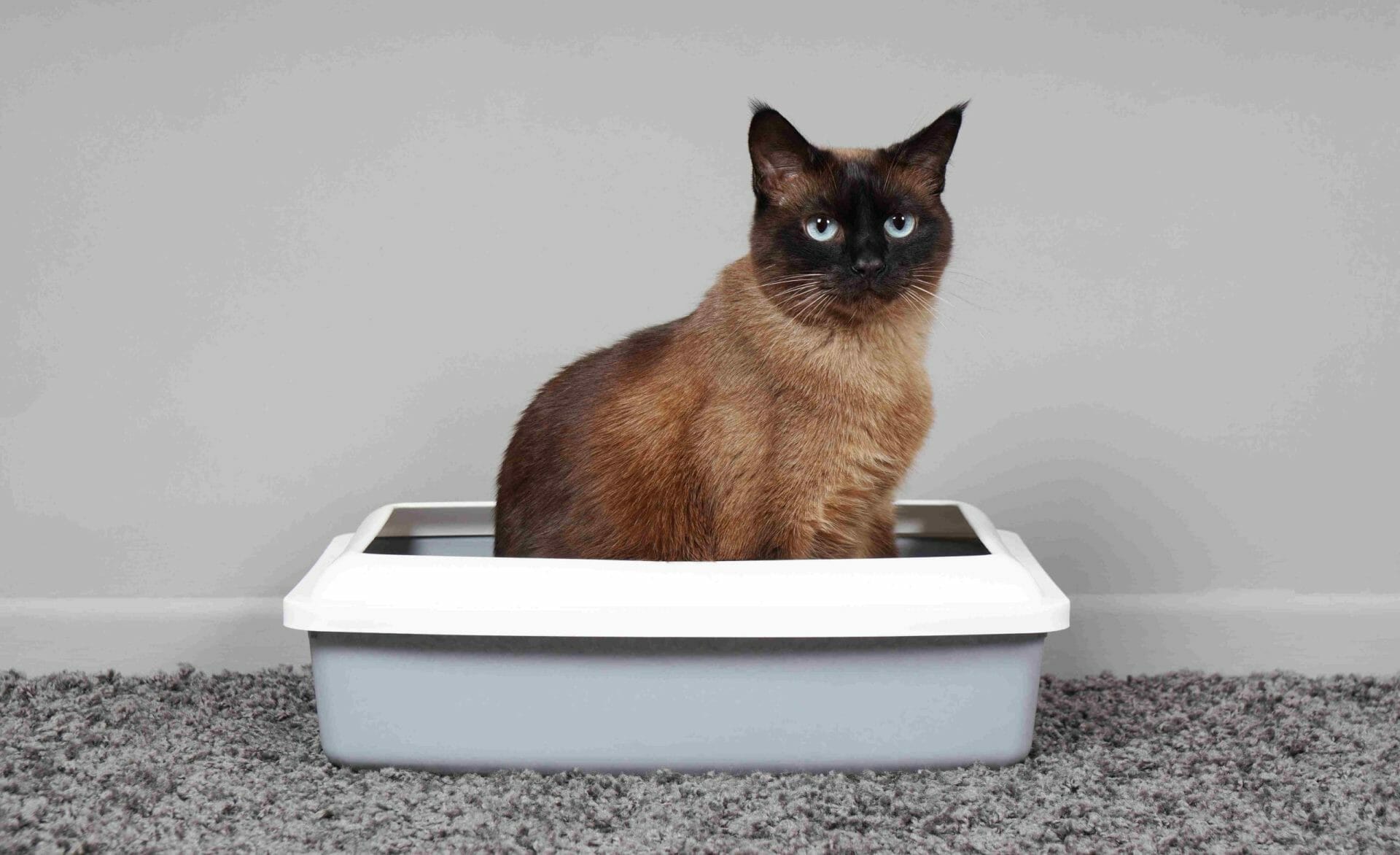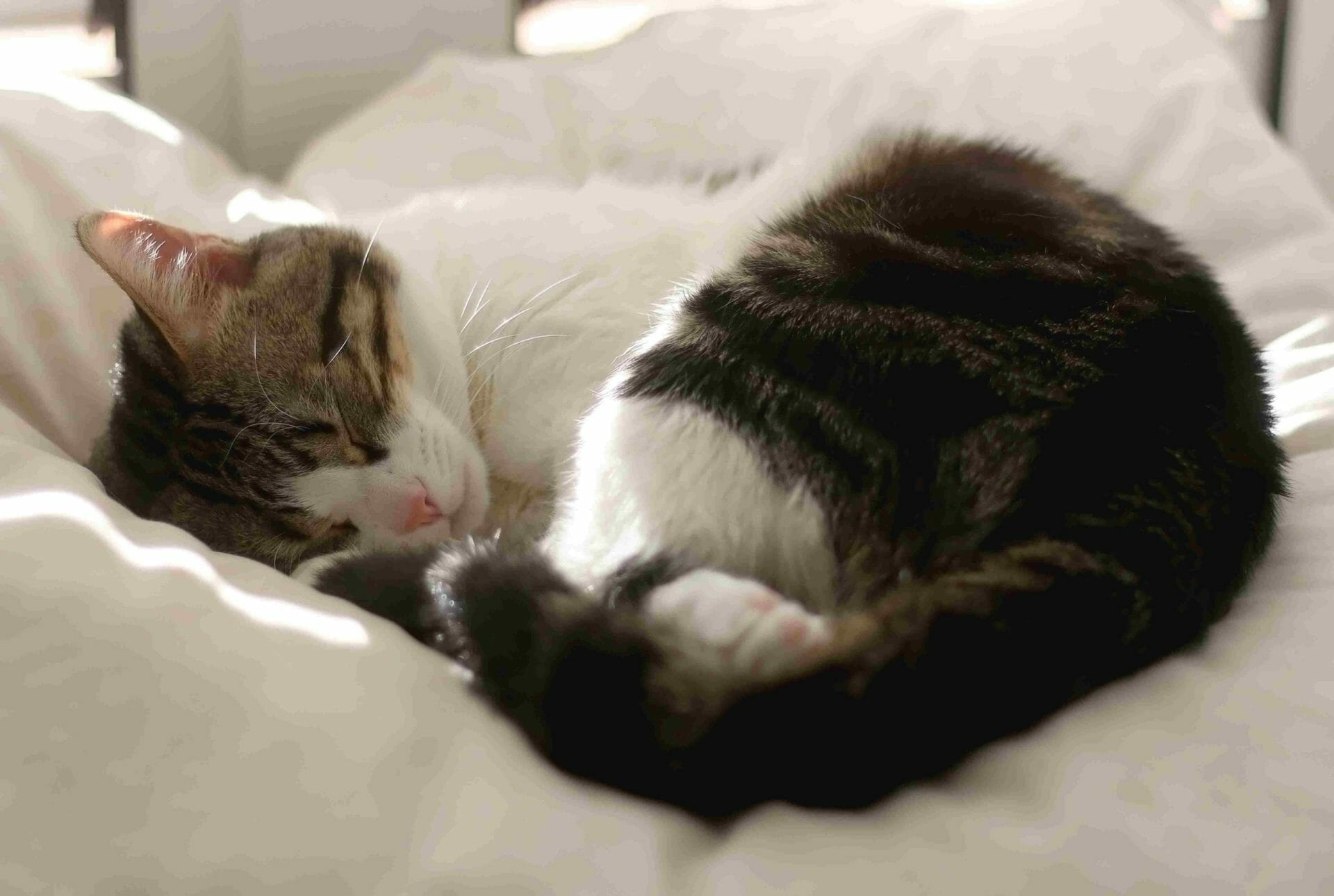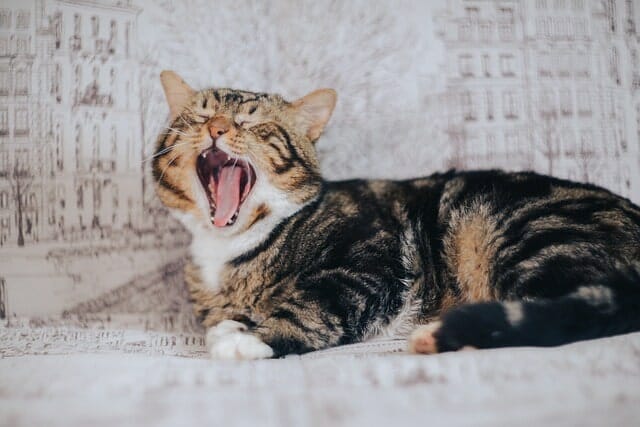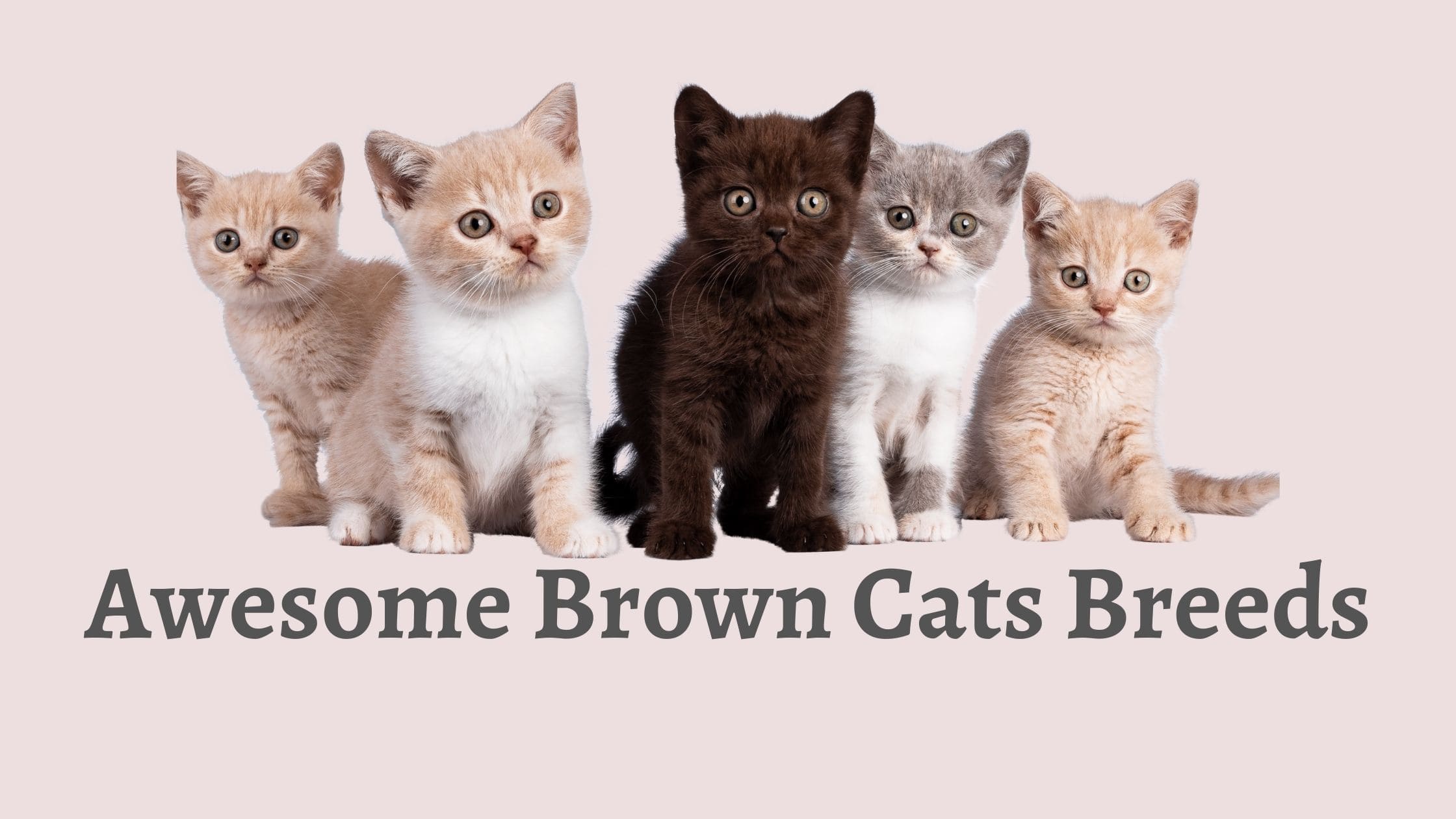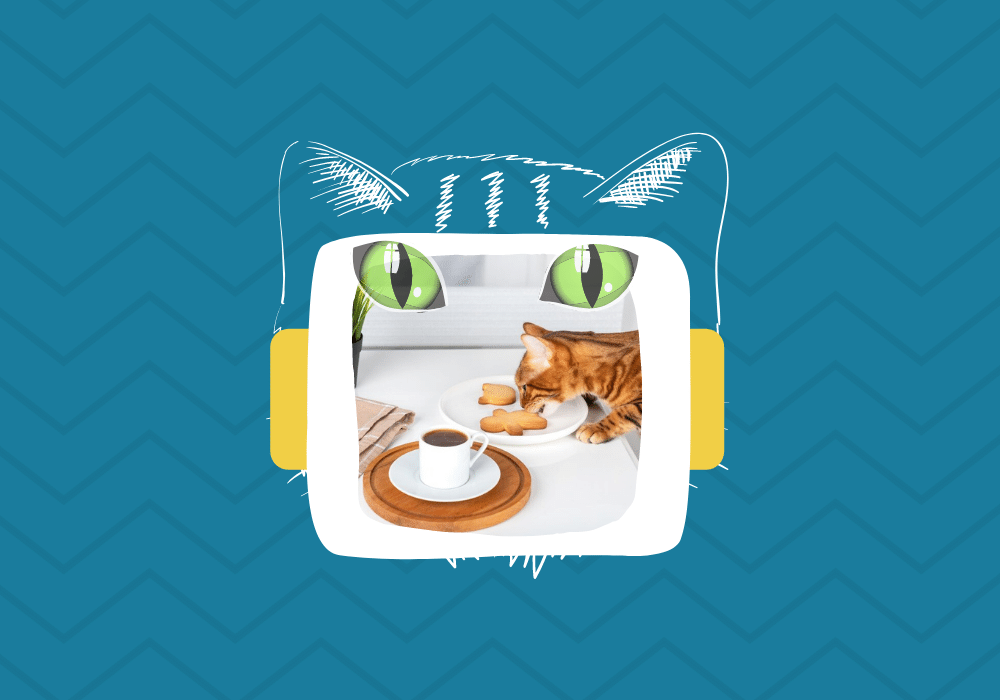Can Cats Eat Peanut Butter? (Read This First)
Some cat owners ask a question: Can cats eat peanut butter? The answer is yes, but many exceptions should be considered before feeding your cat with peanut butter. Cat owners may protect their cat’s health by learning about proper portions and ingredients that they should avoid feeding their cat with and cat diet nutrition.
Peanut butter is a famous treat for pets, so some may wonder if their cats can also eat peanut butter. The short answer to this question is: yes—cats can have peanut butter in balanced quantities. But before giving your cat a spoonful, there are other questions that you should consider:
- Are there any nutritional and health benefits of feeding cats peanut butter?
- Is there any risk involved in feeding cats peanut butter?
- How can we feed cats peanut butter safely?
Peanut butter is considered a safe treat in small amounts for completely healthy cats. So if someone’s cat has a health condition or any disorder or health disturbance, the generalization (i.e., cats can eat peanut butter) does not apply. They are answering these needs with a quick review of feline nutrition.
Every cat is different and can vary in many respects when tolerating certain foods. Also, some health conditions and nutrients affect one individual more than the other. So, “Cats must be treated individually,” the Clinical Nutrition Service says, “as some cats can consume a particular food item without facing any health issue, and another cat can consume the same item and may face health issues such as it may develop vomiting, diarrhea, or other adverse conditions.”
Most of a cat’s calories should come from foods specially formulated to feed the cat the nutrients it needs. Human foods like peanut butter or other foods should only be given occasionally and in moderation in a balanced state to avoid any health issues. Peanut butter contains a hazardous health sweetener called xylitol that is toxic to cats. Due to peanut butter’s thick, sticky consistency, it may be a choking hazard for cats.
Xylitol can cause vomiting, lethargy, and even loss of coordination, and signs can progress to seizures and may lead to liver failure. Cat owners should always check the nutrition label and purpose for a butter containing only peanuts. The simpler the butter, the better it is for the cat’s health.
If you fear or suspect that your cat has eaten peanut butter sweetened with xylitol, call your veterinarian and get your cat consulted as soon as possible.
How to feed cats with peanut butter safely?
With these diet charts and feline nutritional needs in mind, given below are some general rules that cat owners should always follow while feeding their cat peanut butter:

- Ask and talk about anything that comes to your mind before feeding your cat something new. Also, every cat owner must seek permission from their veterinarian before feeding their cat any fresh human foods—even if they’re typically considered safe for cats.
- It would help if you calculated; to determine what amount of peanut butter your cat can safely eat, you may need to do a little math.
- One must check the nutrition label on their peanut butter jar to see the calories per tablespoon. Peanut butter is usually calorically dense, so the correct portion size must be tiny. You must double-check the ingredient list to ensure your peanut butter does not contain anything your cat needs to avoid—especially xylitol. Cats can vary in the quantity of food they can eat each day to maintain an ideal weight and stay healthy. If someone is unsure how many calories their cat requires or its perfect weight, they must ask their veterinarian about developing a nutrition plan or a diet chart specific to their cat.
- Monitor; The Clinical Nutrition Service elaborates that even the safest foods can have unexpected reactions and may be adverse for someone’s cat, so watch your cat for gastrointestinal disturbances (such as vomiting and diarrhea) after having a new food. Monitor; The Clinical Nutrition Service elaborates that even the safest foods can have unexpected reactions and may be adverse for someone’s cat, so watch your cat for gastrointestinal disturbances (such as vomiting and diarrhea) after having a new food.
- If you think your cat is having an adverse reaction to peanut butter, call your veterinarian to have your cat checked completely so that it may not lead to serious health issues.
It may be possible that your cat has an unknown peanut allergy, and this may quickly prove to be a life-threatening problem that you wish you had avoided. Generally, cats face food allergies, either when they were born with such food allergies or those that developed them over time.
Adverse reactions and situations may be extremely severe when talking about peanut allergies. The cat owners need to understand and recognize the clinical signs of allergies to take steps quickly in reversing or treating an allergic reaction.
Common symptoms of allergies may include the following:
- Itching
- Skin Irritations can occur
- Chronic ear infections can happen
- Hair loss that may lead to baldness
- Diarrhea
- Vomiting
- Loss of appetite
- Weight Loss to dangerous levels
If, due to the reason you think that your cat can be suffering from an allergic reaction to peanuts (peanut butter or anything related to this), it is a must for you to seek veterinary help. In some cases, an allergic reaction can be something as simple as itchy skin. However, an allergic response may rapidly escalate to a dangerous medical emergency in other cases.
Harmful ingredients
Peanut butter may be manufactured to allow it to have a long shelf-life by adding preservatives. It is made to be stored and used for a long time to increase its life. Unfortunately, this process may lead to an incredibly toxic and poisonous food substance known as trans fatty acids.
A small amount of these toxic fats can be seen in peanut butter, made with partially hydrogenated vegetable oil. This is why you should avoid feeding your cat with peanut butter.
Moreover, as in many humans, peanut butter may sometimes lead to gastrointestinal disturbance in cats; it can lead to diarrhea, vomiting, stomach pains, gastric upset, and gas. Your cat can enjoy the taste of peanut butter, but is it worth the side effects? No, we don’t think so.
Aflatoxins present in Peanut Butter
Peanuts are richly filled with naturally occurring aflatoxins, which may be a type of mycotoxin (fungus-related). The mold that colonizes peanuts in the underground areas produces these toxins.
We hate to bear any bad news, but mycotoxins are recognized as one of the most cancer-causing (carcinogenic) matters found on the planet. They have also proved to be incredibly toxic for the liver and can lead to liver cancer.
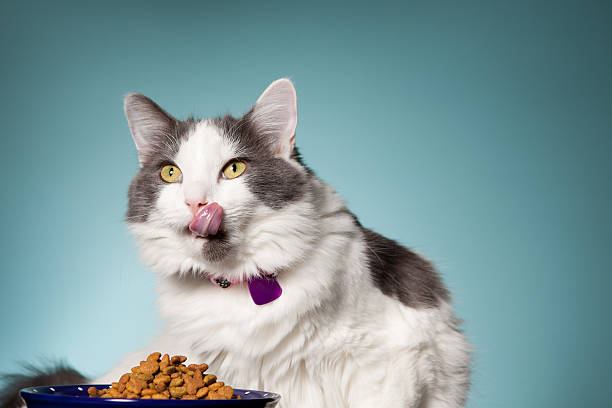
As we know that the felines have evolved as carnivores, your cat already gets everything it needs from eating fish and real meat alone. As a source to obtain plant proteins, peanut butter does not contain all the amino acids that cats require the way which animal proteins do. This means that one won’t need to supplement its cat diet with anything beyond the regular cat food.
Peanut butter is considered safe in tiny quantities for healthy cats only, but it must be avoided for cats facing any medical conditions.
Peanuts are non-toxic, but there are other nuts that cats should not be fed with, and cat owners must hide these from their curious paws.
Macadamia nuts: these can cause weakness and may lead to vomiting.
Heavily salted nuts: heavy salt on most products may wreak havoc on a cat’s digestive and excretory system as they cannot digest large quantities of salt.
Peanut butter is not only appealing and tempting to humans but also cats. Peanut butter offers some nutritional advantages for humans, but it is unnecessary for cats. Peanut butter contains iron, magnesium, Vitamin E, and Vitamin B6.
Side effects of too much peanut butter for cats:
- Diarrhea
- Vomiting
- Obesity
- Indigestion and gut upset
- Getting stuck in the cat’s throat
It’s common for cats to vomit, or they may suffer from diarrhea.
Conclusion
Peanut butter does not have any nutritional value for cats and is of no use, but it’s probably not so much worse for them – as only a one-time snack.
Peanut butter has its cons and even may be harmful to cats who are allergic to it, and it may cause some rather harmful side effects.
It may not lead to poisoning or killing your feline pet until you feed it a spoonful only regularly.
So, cat owners need to be always careful while feeding their cats something new. They must know what their pet may be allergic to. Keeping that in their mind, they may avoid any consequences.
Related Posts
- Can Dogs Eat Peaches? (Read This First)
- Can Cats Eat Peanut Butter? (Read This First)
- Why Does My Dog Snore? (Everything You Need To Know)
- Can Dogs Eat Shrimp? (Read This First)
- Can Dogs Eat Celery? (Read This First)
- 35 Vegetables and Fruits Safe For Your Dog (Best Guide)
- Are Dogs Faster Than Humans? (Everything You Need To Know)
- What Causes Dogs to Scratch Their Bedding Before They Go To Sleep?
- 35 Best Fruits and Vegetables For Your Cat (Master Guide)
- What Breed Of Dog Does The US Secret Service Exclusively Use?
